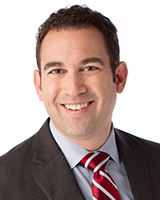Polk Street makeover sparks heated debate


SAN FRANCISCO (KGO) -- Polk Street in San Francisco is about to get a makeover, but the kind of makeover it's getting has become a topic of hot debate.
Beyond being a haven for shops, bars and restaurants, Polk Street is also one of the only ways to get across that part of the city by bicycle and the city wants to make that a whole lot safer.
At a public hearing, cyclists told stories of getting hit by cars to the San Francisco Municipal Transportation Agency, which put a face on a sobering statistic.
"Polk Street is one of the six percent of city streets that account for 60 percent of the collisions," San Francisco MTA spokesman Ben Jose said.
It's why engineers have worked up a plan to make Polk Street safer on bike and on foot.
Green lanes like the one that's already at the end of Polk Street near the Civic Center would keep bikes separate from cars. They'd even have their own traffic lights.
"We know we can make a difference with the safety improvements that we're proposing," Jose said.
But not everyone agrees.
"We're concerned that people from outside the neighborhood are going to make drastic changes that affect the neighborhood negatively," Dan Kowalski of Save Polk Street.
A coalition called Save Polk Street worries adding bike lanes will take away too much of something else, parking.
"The street parking is very hard to come by in our neighborhood. It's already at a critical level," Dawn Trennert, of the Middle Polk Neighborhood Association.
The current plan would take away 110 parking spaces. That's 30 percent of the spots on a street where garages already fill up and tickets fall like confetti.
"More tow-away, more fine zones would make it even worse, it makes it almost impossible to live in the neighborhood," Trennert said.
The hearing Friday became a lively debate and it was packed.
The MTA has tried to work out a compromise, allowing parking in some bike lanes after rush hour and foregoing the lanes in favor of share the road markers in other spots.
But trying to please everyone, may end up not pleasing anyone at all.
"I don't support this plan because I don't think it goes far enough to protect the most vulnerable users of the road," said one man during the meeting.
It all leaves the MTA board with a tough task ahead of them: Decide if the compromise on the table is good enough, or if engineers need to go back to the drawing board. They could vote as soon as next month.




